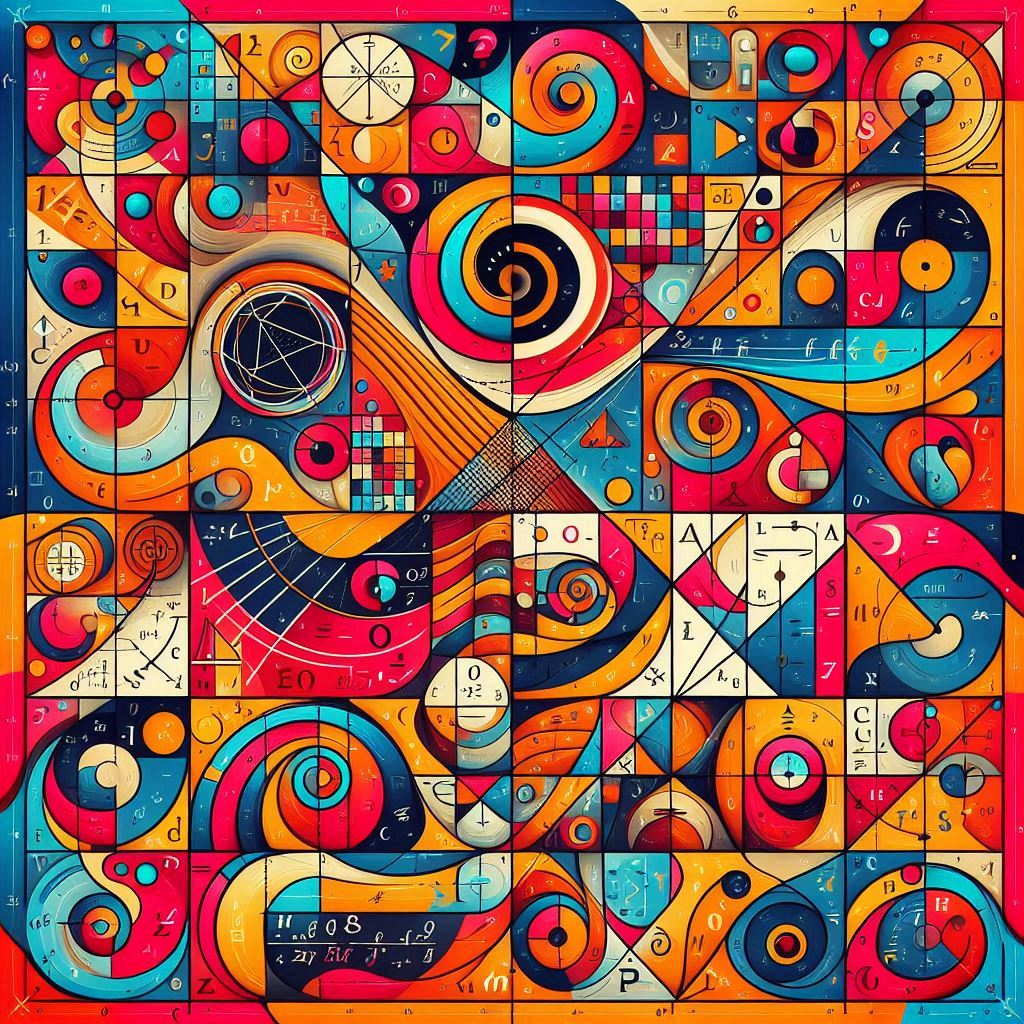The 4 Types of Logic You Should Know
Logic is everywhere. We use it to make everyday decisions, and scientists use it to explore the universe. Understanding the different types of logic can help us think better and make wiser choices. Whether you’re studying philosophy, getting ready for a debate, or want to improve problem-solving skills, knowing the 4 types of logic can give you an advantage. Let’s look at deductive, inductive, abductive, and symbolic logic.
Exploring the Foundations of Logic
Philosophical Logic

Deductive reasoning is the foundation of philosophical logic. It involves drawing a specific conclusion from a set of general premises. This type of reasoning is different from inductive reasoning, which draws conclusions based on specific observations or examples that lead to a generalization.
In philosophical logic, the study and analysis of common fallacies is important. Fallacies are errors in reasoning that can weaken arguments. They must be identified and avoided to ensure the validity of the argument.
Logical principles, such as those found in classical logic, provide the fundamental framework for philosophical logic. Classical logic encompasses propositional and first-order logic. It focuses on truth preservation and the structure of valid arguments.
In contrast, non-classical logics, such as modal logic, explore different aspects of logical reasoning. They introduce new operators that express necessity and possibility, opening up alternative perspectives on the principles of logical reasoning.
The Role of Deductive Reasoning

Deductive reasoning involves drawing a specific conclusion from a general premise. Unlike inductive reasoning, which goes from specific instances to general conclusions, it moves from the general to the particular. Deductive reasoning ensures that conclusions drawn from premises are accurate if the premises are true.
For example, if the premise is that all humans are mortal, and the specific conclusion is that John is human, then deductive reasoning concludes that John is mortal.
Everyday examples of deductive reasoning include mathematical proofs and syllogisms. In academic fields, it is used in philosophy, law, and computer science for coding and algorithm development. Recognizing and applying deductive reasoning is essential for making accurate and informed conclusions based on evidence and logic.
Identifying Common Fallacies

Some common examples of fallacies that people may encounter in everyday reasoning and arguments are:
- Ad Hominem Fallacy: This is when an argument is countered by attacking the character, motive, or other attribute of the person making the argument rather than addressing the argument itself.
- False Cause Fallacy: This occurs when an event or situation is inaccurately linked to a previous event without any actual cause-and-effect relationship.
Identifying and analyzing fallacious reasoning in an argument or statement involves:
- closely examining the logical structure and premises of the argument
- evaluating the validity of the conclusions drawn from those premises
Failing to recognize and address common fallacies in logical reasoning can lead to:
- the spread of misinformation
- flawed decision-making
- perpetuation of faulty beliefs and opinions
This, in turn, can hinder progress and effective problem-solving across various fields, such as:
- philosophy
- mathematics
- computer science
- linguistics
The Structure of Formal Logic

Understanding Symbols and Syntax
Understanding symbols and syntax in formal logic is vital for developing clear and precise logical reasoning.
Using symbols makes logical arguments clearer and more concise.
It helps represent complex relationships between propositions. For example, in mathematical proofs, symbolic notation simplifies, demonstrating logical implications and relationships between variables, making the overall argument clearer.
Establishing specific rules for symbolic expressions ensures that logical relationships are consistently expressed and interpreted.
Misinterpreting symbols and syntax can result in logical fallacies and false conclusions, which undermines the accuracy of the argument.
For instance, a misused symbol in a logical proof can lead to an incorrect interpretation, yielding invalid inferences.
Therefore, a comprehensive understanding of symbols and syntax is essential for developing and critically evaluating logical arguments.
Basics of Propositional and Boolean Logic
Propositional logic is about statements that can be true or false. It combines or modifies these statements with logical operators like AND, OR, and NOT. This structure is used in math and philosophy for reasoning and problem-solving.
Boolean logic is a specific form of propositional logic where values are reduced to true or false, often represented by 1 and 0. It has practical applications in computer science and digital electronics.
Truth tables analyze and evaluate the validity of propositions and logical expressions in propositional and Boolean logic. They help understand the logical relationships between statements and are essential for determining accuracy and consistency.
Exploring Predicate Logic
Predicate logic uses quantifiers and variables, which are different from the essential components of propositional logic, which uses variables and logical connectives.
Predicate logic allows for expressing relationships and properties in a more complex and nuanced manner by using quantifiers.
For example, in mathematics, predicate logic can express the properties of numbers, equations, and functions more precisely and in detail than propositional logic.
In computer science, predicate logic is applied to programming languages to represent data structures and their relationships and write more complex algorithms.
In linguistics, predicate logic can be used to analyze the structure of natural language sentences. It includes the relationships between subjects and objects and the properties of verbs and nouns to understand more complex nuances in meaning and interpretation.
Mathematical Logic and Its Applications

Delving into Set Theory
Set theory is foundational in mathematical logic. It covers basic concepts like sets, elements, and operations. Sets are collections of distinct objects, and elements are the individual objects within sets.
Set theory is essential for justifying basic logical concepts in mathematics. Operations like union, intersection, and difference clarify mathematical proofs and reasoning.
These concepts are also used in computer science to address computability challenges. Set theory helps analyze algorithms essential for computations.
Fundamentals of Metalogic
Metalogic is about the basic principles of formal logic. It includes looking at metalanguages, proof theory, and model theory.
It focuses on studying formal systems’ properties and logical systems’ strengths. Unlike other branches of logic, like propositional and predicate logic, metalogic deals with concepts about the nature and power of logical systems and their relationships.
Understanding metalogic is vital in formal logic and its applications. It gives insights into the limits and abilities of logical systems and the key properties that underlie different logical frameworks. This understanding is essential in mathematics, computer science, and philosophy, where logical systems are used for real-world problems and reasoning. If you are running for a PhD in computer sciences, you’ll notice that all of the aforementioned fields work jointly in order to bring forth solutions to logical problems that require reasoning.
In computer science, metalogic helps develop and assess programming languages and automated reasoning systems, ensuring their correctness and reliability.
The Challenge of Computability
The challenge of computability in logic is complex. It raises questions about which logical problems can be solved by machines and humans and to what extent.
Computability affects the study and application of mathematical logic. It involves determining the limitations of machines and humans in solving logical problems, leading to the development of decision procedures and logical frameworks.
In non-classical logic variants, computability influences the development and analysis of alternative logical systems. These systems address computability issues based on approximate reasoning, fuzzy logic, and paraconsistent logic. They aim to extend traditional logic to accommodate partial truth and more effectively embrace computability’s limitations.
This approach radically changes the notion of what it means for logic to represent correctly and reason about the world.
Non-Classical Logic Variants

Understanding Classical Logic
Classical logic is based on key principles.
One principle is the law of excluded middle. It says that any proposition is either true or false.
Another principle is the law of non-contradiction. It says that no proposition can be true and false simultaneously and in the same sense.
These principles, along with identity and bivalence, form the foundation of classical logic.
Classical logic differs from non-classical logic in strictly adhering to these principles. Non-classical logic allows for more than two truth values and a broader range of logical relations.
Understanding classical logic helps in understanding mathematical and philosophical reasoning.
It provides a framework for analyzing and constructing valid arguments.
Through classical logic, mathematicians can prove theorems rigorously, and philosophers can dissect complex propositions to reveal their underlying logical structure.
This understanding also helps in critical thinking and problem-solving.
It enables individuals to identify fallacies and reason more effectively in natural language arguments.
Modal Logic: Possibility and Necessity
Modal logic is about possibility and necessity.
Necessity means something must be true in all possible worlds, while possibility refers to what could be true in at least one possible world.
This type of logic differs from classical logic because it considers the necessity and possibility of statements and how they relate.
Unlike classical logic, where statements are just true or false, modal logic introduces complexity with necessity and possibility.
Modal logic is important for reasoning about philosophical concepts like existence, knowledge, belief, and ethics.
It helps us consider what is possible or necessary in different situations, giving insight into reality and enhancing our understanding of limits.
It’s also used in fields like computer science, mathematics, and linguistics, where thinking about possibility and necessity is essential.
In short, modal logic goes beyond the binary nature of classical logic, providing valuable tools for understanding the world’s complexities.
Exploring Logic in Natural Language
Natural language uses words like “and,” “or,” and “if-then” to connect ideas. These words help create relationships between ideas and form logical arguments. We find fallacies like circular reasoning, hasty generalization, ad hominem attacks, and appeals to authority in natural language. Exploring logic in natural language differs from formal logic because it focuses on everyday communication rather than abstract symbols.
Informal logic deals with vague language and the practical aspects of reasoning, while formal logic is more precise and rigorous.

Vizologi is a revolutionary AI-generated business strategy tool that offers its users access to advanced features to create and refine start-up ideas quickly.
It generates limitless business ideas, gains insights on markets and competitors, and automates business plan creation.


